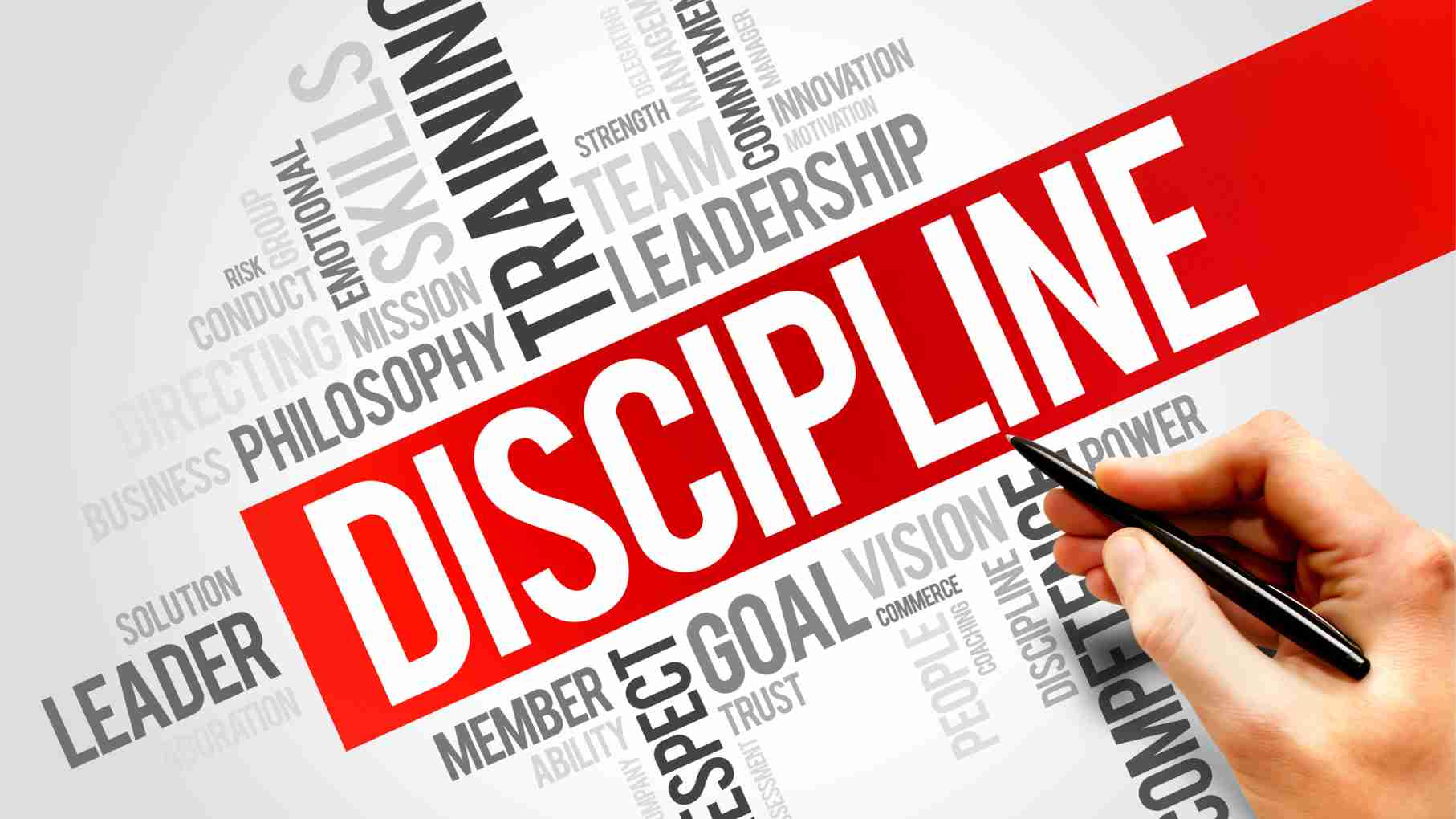Date: January 06, 2024
Unlocking Success: The Power of Self-Discipline: Hello Empowered Souls! 💖✨As your dedicated Women Happiness Coach and Gynaecologist, let’s delve into the profound realm of self-discipline and its pivotal role in achieving unparalleled success. In this transformative journey, discover why self-discipline is not just a trait but a powerful key unlocking the doors to your dreams.

Unlocking Success: The Power of Self-Discipline
Introduction: In the tapestry of success, self-discipline stands as the cornerstone. It is not merely a habit but a guiding force that propels individuals towards their aspirations. Today, let’s explore the profound connection between self-discipline and the fulfillment of your deepest desires.
The Essence of Self-Discipline:
Understanding Self-Discipline: Self-discipline is the ability to control one’s actions, thoughts, and emotions with the purpose of achieving long-term goals. It is the conscious choice to stay focused and committed to the path of success.
The Foundation of Success: Success is not an overnight achievement; it’s a culmination of consistent efforts fueled by self-discipline. Explore how this foundation sets the stage for lasting achievements in both personal and professional spheres.
The Journey Towards Self-Discipline:
Cultivating Daily Habits: Discover the transformative impact of cultivating daily habits that promote self-discipline. Small, consistent actions lay the groundwork for significant accomplishments.
Overcoming Procrastination: Procrastination is the enemy of progress. Uncover effective strategies to overcome procrastination and embrace a proactive mindset that propels you towards success.
Self-Discipline in Personal Growth:
Mind-Body Connection: Explore the interconnectedness of self-discipline and overall well-being. Witness how nurturing the mind-body connection contributes to a more disciplined and purposeful life.
Embracing Challenges: Challenges are inevitable on the journey to success. Learn how self-discipline acts as a shield, enabling you to face challenges with resilience and determination.
Success Stories of Self-Discipline:
Real-Life Examples: Draw inspiration from real-life success stories of individuals who have harnessed the power of self-discipline to achieve remarkable feats. Witness the transformative impact of this key ingredient.
Practical Tips and Strategies:
Goal Setting and Planning: Master the art of setting realistic and achievable goals. Learn effective planning strategies that align with your aspirations, creating a roadmap to success.
Creating a Supportive Environment: Surround yourself with positivity and cultivate an environment that fosters self-discipline. Discover how your surroundings can significantly impact your journey.
Conclusion: The Empowered Path Ahead:
Self-discipline is not a restriction but a liberating force that empowers you to take charge of your destiny. As you embark on this journey, may you realize the untapped potential within, guided by the key of self-discipline.
Closing Thoughts:
Empower yourself with the invaluable gift of self-discipline. It is the compass that directs you towards success, guiding each step with purpose and determination. Here’s to a life filled with achievements, fueled by the unwavering commitment to your dreams.
For more insights and guidance on your path to success and happiness, explore my
Free Course: Women Happiness Mantra.
Navigating Self-Discipline: Overcoming 7 Major Roadblocks
Introduction: Self-discipline is the compass that guides us toward success, but the path is not always smooth. Today, let’s unravel the common roadblocks to self-discipline and equip ourselves with the tools to triumph over them.
1. Lack of Clarity in Goals:
Understanding the Disconnect: A lack of clear goals can blur the path to self-discipline. Explore how undefined objectives hinder the development of disciplined habits.
Setting SMART Goals: Learn the art of setting Specific, Measurable, Achievable, Relevant, and Time-bound (SMART) goals that align with your aspirations.
2. Procrastination:
Procrastination as a Detour: Procrastination veers us off the disciplined path. Delve into the reasons behind procrastination and its impact on self-discipline.
Conquering Procrastination Habits: Discover practical strategies to conquer procrastination, fostering a proactive and disciplined mindset.
3. Lack of Consistent Habits:
The Power of Consistency: Inconsistent habits disrupt the development of self-discipline. Understand the importance of consistent actions in cultivating discipline.
Building Daily Rituals: Explore the creation of daily rituals that promote consistency, anchoring self-discipline into your daily life.
4. Negative Self-Talk:
Identifying Self-Doubt Patterns: Negative self-talk erodes self-discipline. Identify self-doubt patterns and their detrimental impact on disciplined efforts.
Transforming Self-Talk into Affirmations: Learn transformative techniques to shift negative self-talk into affirmations that empower and reinforce disciplined behavior.
5. Lack of Motivation:
Motivation as a Driving Force: A lack of motivation can derail self-discipline. Explore how to reignite motivation and infuse enthusiasm into disciplined pursuits.
Creating Intrinsic Motivation: Discover the power of intrinsic motivation and how to cultivate it for sustained self-discipline.
6. Overwhelm and Stress:
Navigating Overwhelm: Overwhelm and stress can hinder disciplined actions. Learn strategies to navigate overwhelming situations and maintain focus.
Incorporating Stress-Relief Practices: Explore stress-relief practices that create a conducive environment for disciplined habits to flourish.
7. Fear of Failure:
Fear as a Roadblock: Fear of failure can paralyze self-discipline efforts. Understand how fear hinders progress and disciplined decision-making.
Embracing Failure as a Stepping Stone: Learn to embrace failure as a natural part of the journey, using it as a stepping stone toward growth and refined self-discipline.
The journey to self-discipline is an ongoing exploration. As we identify and overcome these roadblocks, may you find renewed strength, resilience, and a disciplined approach to achieving your goals.
Closing Thoughts:
Empower yourself to overcome roadblocks on your journey to self-discipline. Each challenge is an opportunity for growth and transformation. Here’s to a life anchored in discipline, resilience, and the unwavering pursuit of your dreams.
Frequently asked questions (FAQs) with answers
- Q: What is self-discipline, and why is it important for success?
- A: Self-discipline is the ability to control one’s actions, thoughts, and emotions to achieve long-term goals. It’s crucial for success as it ensures consistent efforts and focus on the path to achievement.
- Q: Can anyone develop self-discipline, or is it an inherent trait?
- A: Self-discipline is a skill that can be developed through conscious effort, practice, and adopting positive habits.
- Q: How does self-discipline contribute to personal growth?
- A: Self-discipline fosters personal growth by promoting consistency, resilience, and a proactive mindset, essential for overcoming challenges.
- Q: Is self-discipline only relevant for professional success, or does it extend to personal life as well?
- A: Self-discipline is applicable to all aspects of life, including personal relationships, health, and well-being.
- Q: What role does goal setting play in cultivating self-discipline?
- A: Goal setting provides a clear direction for disciplined actions, serving as a roadmap toward success.
- Q: How can one overcome the fear of failure on the journey to self-discipline?
- A: Embracing failure as a learning opportunity and focusing on progress rather than perfection helps overcome the fear of failure.
- Q: Can self-discipline be developed at any stage of life, or is it more effective when cultivated early?
- A: Self-discipline can be cultivated at any stage of life, and its effectiveness is determined by consistent efforts and commitment.
- Q: Are there specific techniques to maintain self-discipline during challenging times?
- A: Techniques include breaking tasks into smaller steps, creating a supportive environment, and practicing mindfulness to stay focused.
- Q: How does self-discipline contribute to building confidence?
- A: Self-discipline boosts confidence by demonstrating the ability to set and achieve goals, fostering a positive self-image.
- Q: Can setbacks and failures hinder the development of self-discipline?
- A: Setbacks are part of the journey. Learning from failures enhances resilience and strengthens self-discipline over time.
- Q: Is self-discipline a one-size-fits-all concept, or does it vary from person to person?
- A: Self-discipline is personalized and may involve different strategies for individuals based on their goals, values, and strengths.
- Q: How can one stay motivated on the path to self-discipline?
- A: Intrinsic motivation, setting meaningful goals, and celebrating small victories help sustain motivation in self-discipline efforts.
- Q: Can external factors impact self-discipline, and if so, how can one mitigate their influence?
- A: External factors can influence self-discipline. Mitigate their impact by creating a conducive environment and setting boundaries.
- Q: Does self-discipline require sacrificing leisure and relaxation?
- A: Self-discipline involves balance. It includes time for relaxation and leisure to maintain overall well-being.
- Q: Can self-discipline be contagious, influencing others positively?
- A: Yes, self-discipline can inspire and positively influence others, creating a supportive and disciplined community.
- Q: How does self-discipline relate to time management?
- A: Effective time management is a component of self-discipline, ensuring priorities are addressed efficiently.
- Q: Can self-discipline be regained after a period of inconsistency?
- A: Absolutely. Reflect on the reasons for inconsistency, adjust strategies, and recommit to disciplined habits.
- Q: Is it possible to be too strict with oneself in the pursuit of self-discipline?
- A: Striking a balance is essential. Excessive strictness may lead to burnout, while flexibility allows for sustainable self-discipline.
- Q: Can external support, such as accountability partners, enhance self-discipline?
- A: Yes, external support provides accountability and encouragement, reinforcing disciplined efforts.
- Q: How does self-discipline impact mental health?
- A: Self-discipline positively impacts mental health by promoting a sense of control, resilience, and reduced stress.
- Q: Are there signs that indicate progress in developing self-discipline?
- A: Signs include consistent adherence to goals, improved focus, and a positive shift in habits over time.
- Q: Can self-discipline be adapted to different lifestyles and professions?
- A: Yes, self-discipline is adaptable. It can be tailored to suit various lifestyles, professions, and personal preferences.
- Q: Does self-discipline require strict routines, or can it accommodate flexibility?
- A: Self-discipline accommodates flexibility. Balancing structure with adaptability ensures sustainable habits.
- Q: How can one avoid burnout while maintaining self-discipline?
- A: Prioritize self-care, set realistic goals, and recognize when to take breaks to prevent burnout.
- Q: Can self-discipline lead to a more fulfilling and purposeful life?
- A: Yes, self-discipline contributes to a sense of purpose, fulfillment, and achievement in various aspects of life.
- Q: Is there a recommended age to start instilling self-discipline in children?
- A: Instilling self-discipline in childhood lays a foundation. Start introducing age-appropriate habits early for lifelong benefits.
- Q: Can technology and apps aid in developing self-discipline?
- A: Yes, technology can provide tools and reminders to support self-discipline, such as goal-tracking apps and productivity tools.
- Q: How can one overcome the temptation to procrastinate during challenging tasks?
- A: Break tasks into smaller, manageable steps, set deadlines, and focus on the rewards of completing the task to overcome procrastination.
- Q: Is it possible to strike a balance between self-discipline and spontaneity?
- A: Yes, finding a balance allows for disciplined habits while embracing spontaneity for creativity and enjoyment.
- Q: Can self-discipline help in overcoming bad habits and addictions?
- A: Yes, self-discipline plays a vital role in breaking and replacing unhealthy habits and addictions.
- Q: How does self-discipline contribute to financial success and stability?
- A: Self-discipline in financial habits, such as budgeting and saving, contributes to long-term financial success and stability.
- Q: Can self-discipline be practiced in social settings without becoming overly rigid?
- A: Yes, practicing self-discipline in social settings involves making intentional choices while maintaining social connections and enjoyment.
- Q: Is self-discipline a lifelong journey, or can it be achieved and maintained quickly?
- A: While initial changes may be quick, self-discipline is a lifelong journey that requires ongoing commitment and adaptation.
- Q: How can one recover from a setback in self-discipline without losing motivation?
- A: Reflect on the setback, learn from it, and recommit to disciplined habits with a focus on continuous improvement.
- Q: Can self-discipline positively impact relationships and communication?
- A: Yes, self-discipline enhances interpersonal skills, contributing to healthier relationships and effective communication.
- Q: Are there cultural differences in the approach to self-discipline?
- A: Cultural perspectives may vary, but the principles of self-discipline are universally applicable, adapting to different cultural contexts.
- Q: How does self-discipline relate to resilience in the face of adversity?
- A: Self-discipline cultivates resilience by instilling the determination to persist and overcome challenges.
- Q: Can self-discipline be a form of self-love and self-care?
- A: Absolutely. Self-discipline is a way of caring for oneself by making choices that align with long-term well-being and happiness.
- Q: How can one handle distractions and stay focused on disciplined tasks?
- A: Minimize distractions, set designated work times, and practice mindfulness to enhance focus and concentration.
- Q: Can self-discipline lead to increased productivity and efficiency in work and daily life?
- A: Yes, self-discipline enhances productivity by fostering efficient work habits and time management.
- Q: Can self-discipline be maintained during challenging life transitions?
- A: Yes, self-discipline can be a stabilizing force during life transitions by providing a sense of control and purpose.
- Q: Does self-discipline require constant effort, or does it become a natural part of one’s lifestyle?
- A: With consistent effort, self-discipline can become a natural part of one’s lifestyle, forming ingrained habits over time.
- Q: How does self-discipline contribute to a sense of empowerment and autonomy?
- A: Self-discipline empowers individuals by giving them control over their choices, actions, and the direction of their lives.
- Q: Can self-discipline be a source of inspiration for others in a community or workplace?
- A: Yes, leading by example in self-discipline can inspire and motivate others to adopt disciplined habits.
- Q: Where can individuals find additional resources and support for developing self-discipline?
- A: Resources include books, courses, support groups, and mentorship.
-
My Free Course: Women Happiness Mantra is a great starting point for women on their self-disciplined journey.
Free Course: Women Happiness Mantra.
Wishing you a journey filled with self-discovery, discipline, and the triumph of your aspirations!
Dr. Ritu Goyal
Gynaecologist & Leading Women Happiness Coach India 🇮🇳
Related articles –

